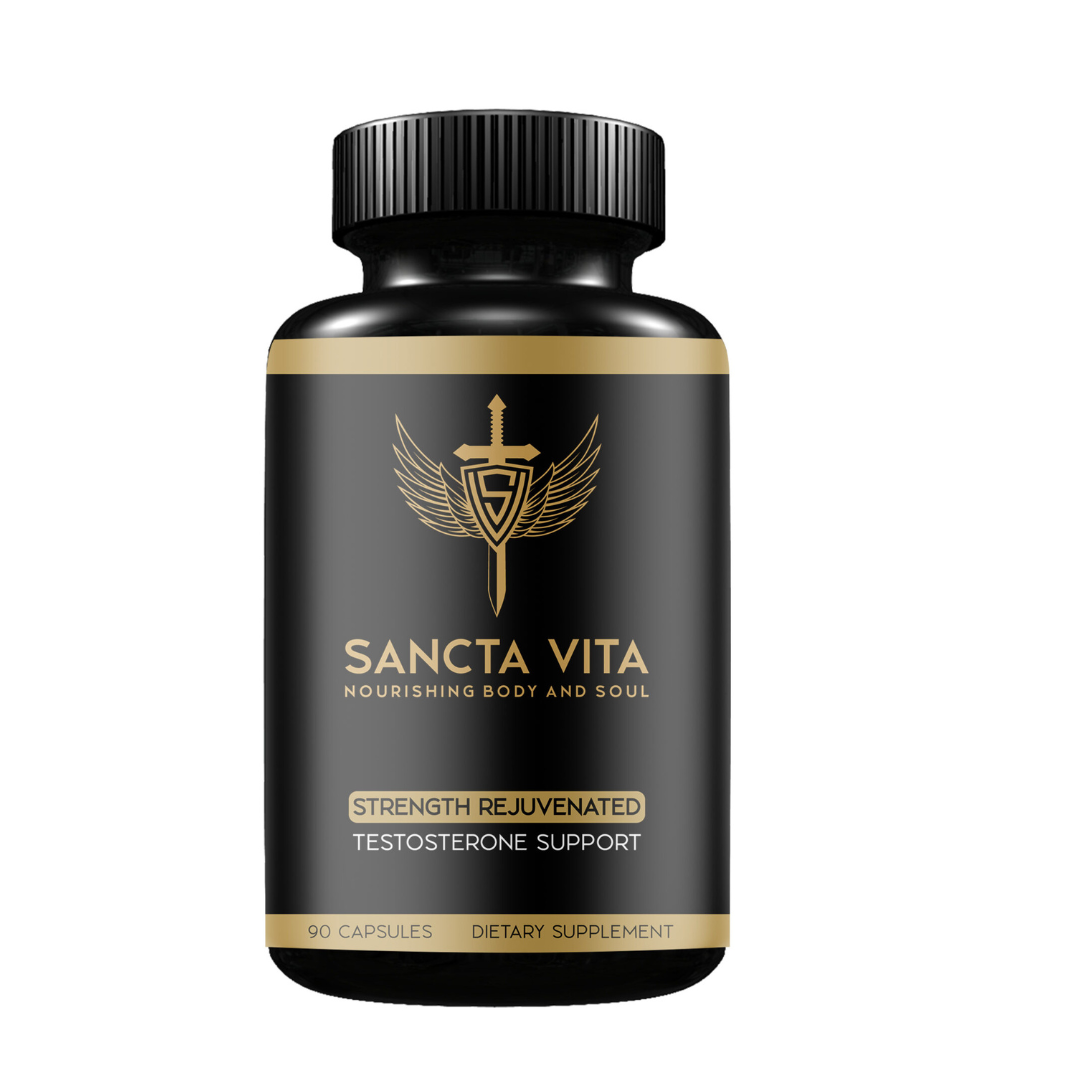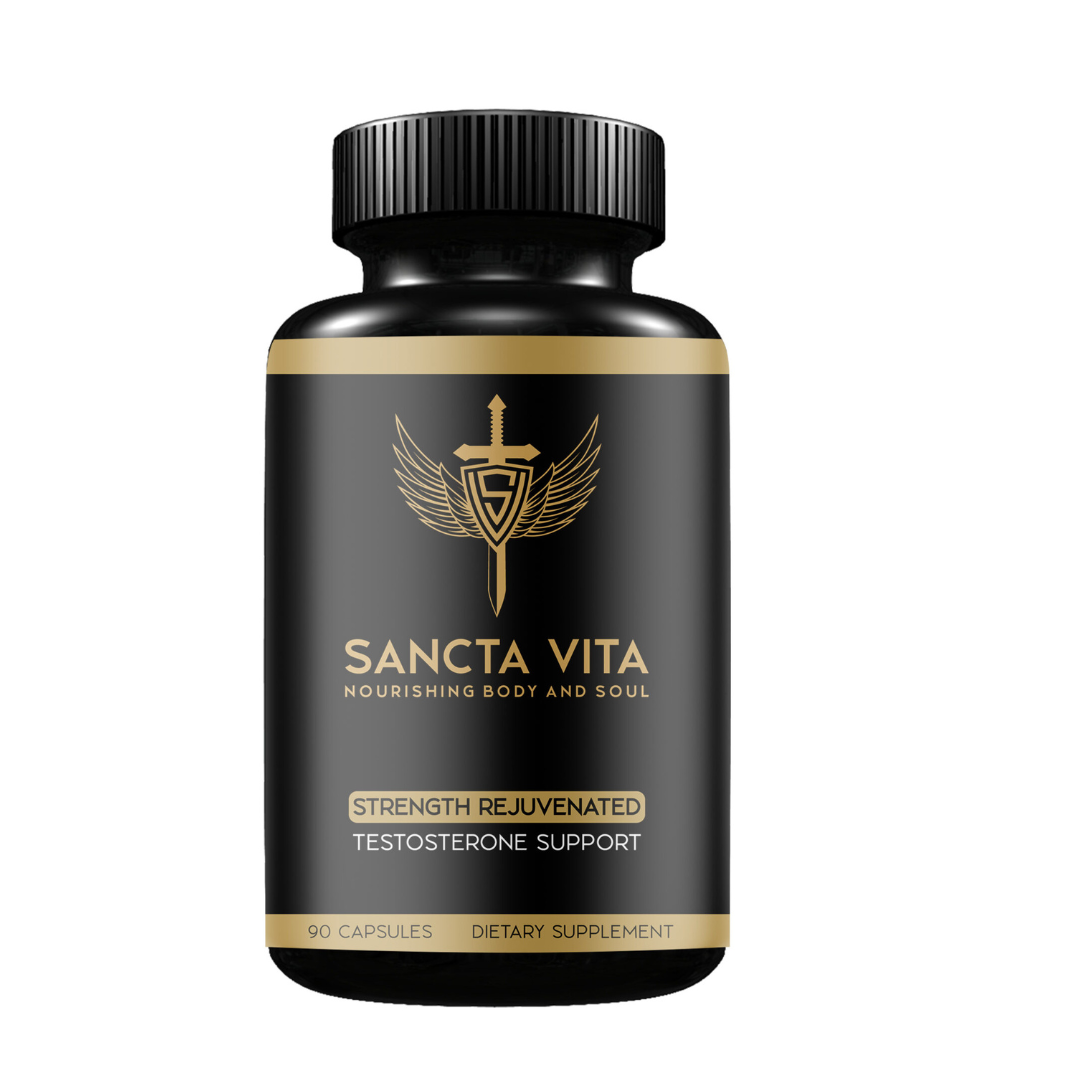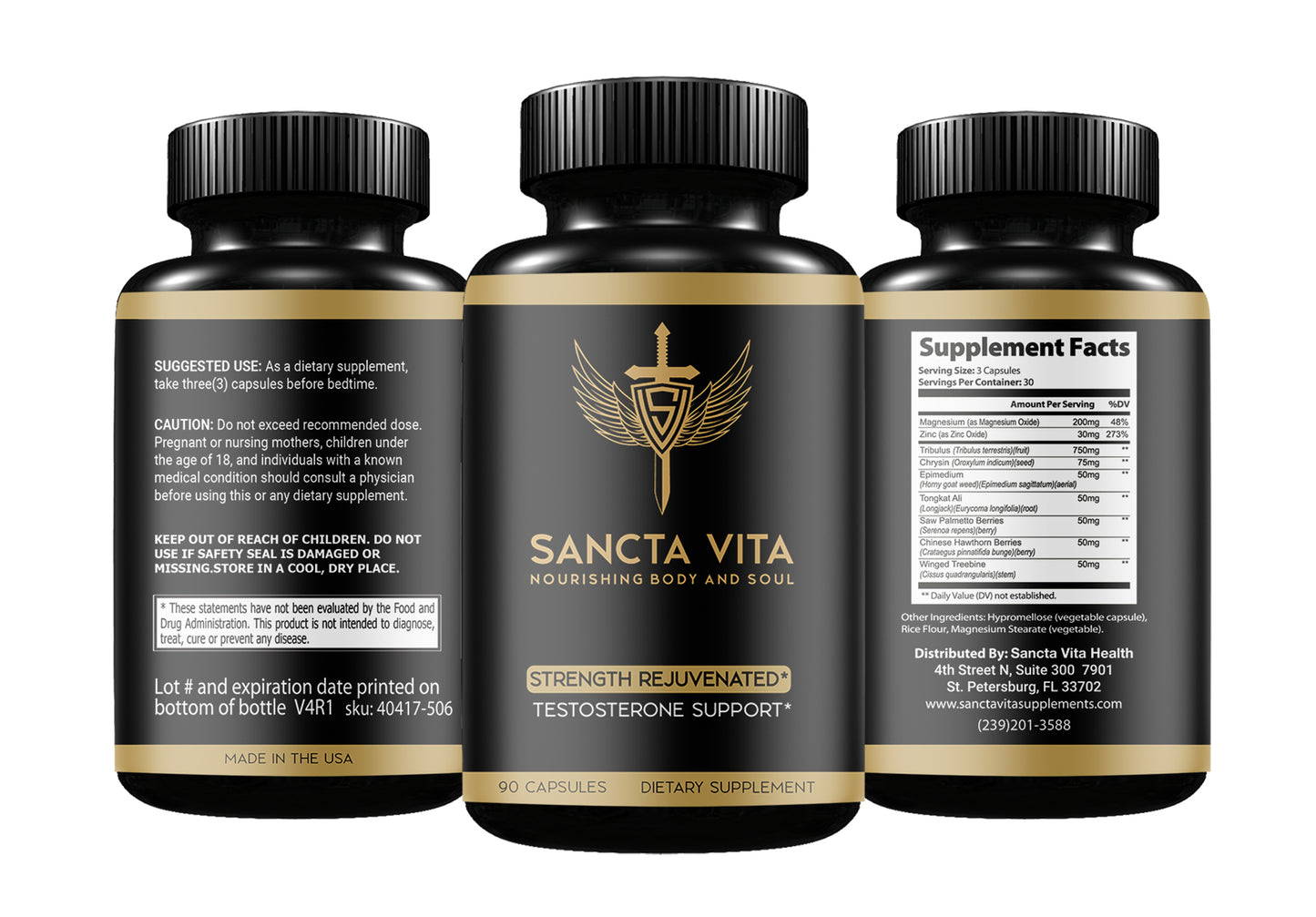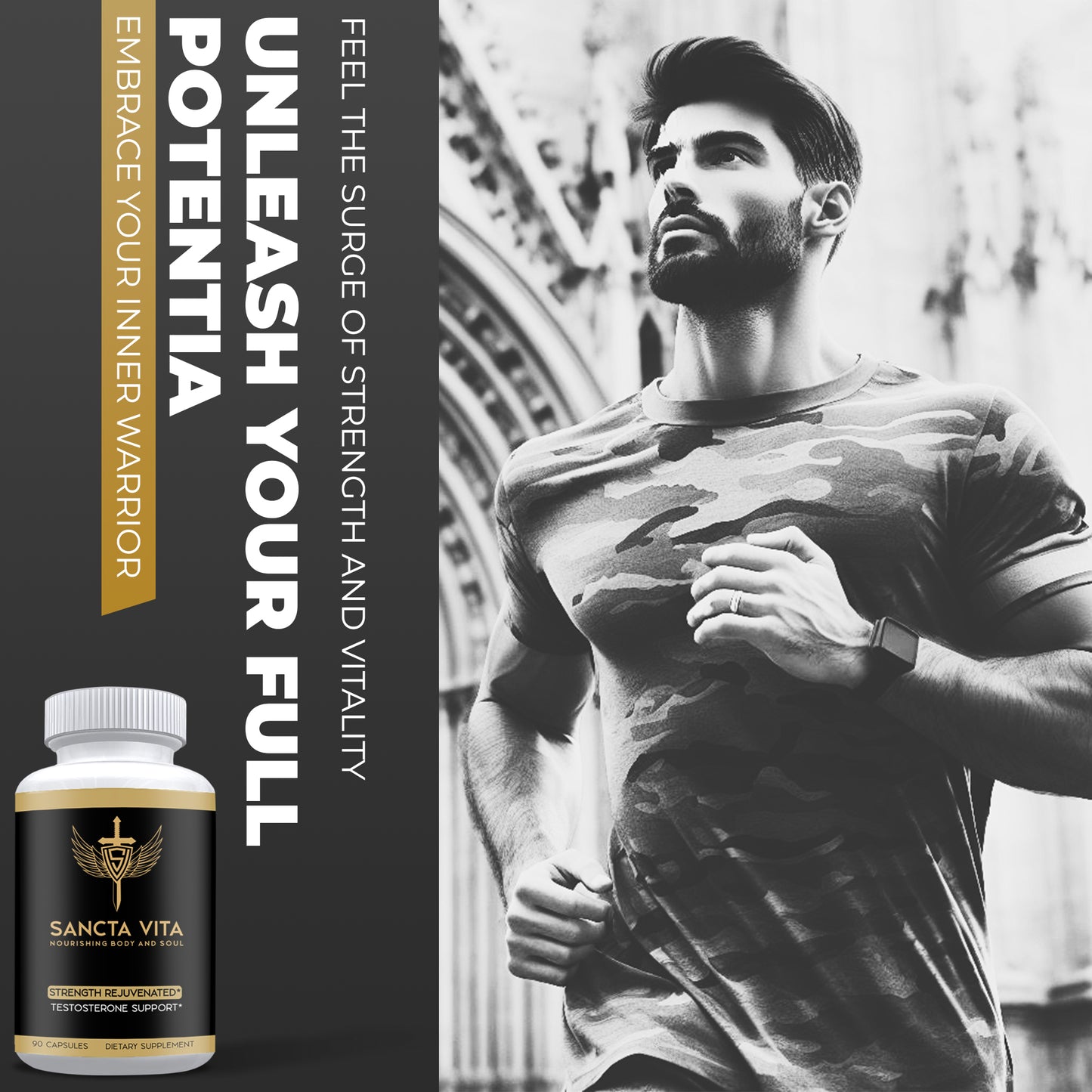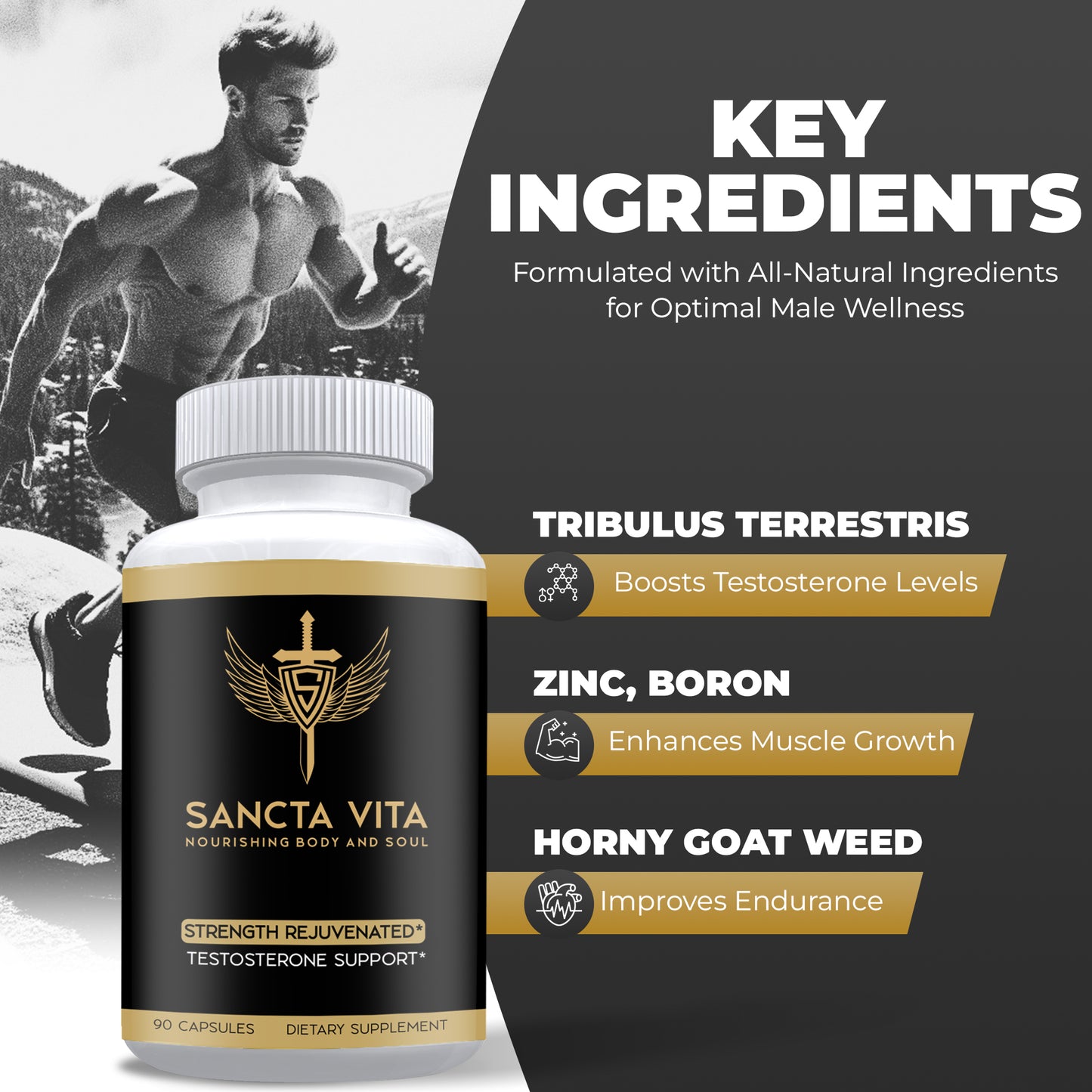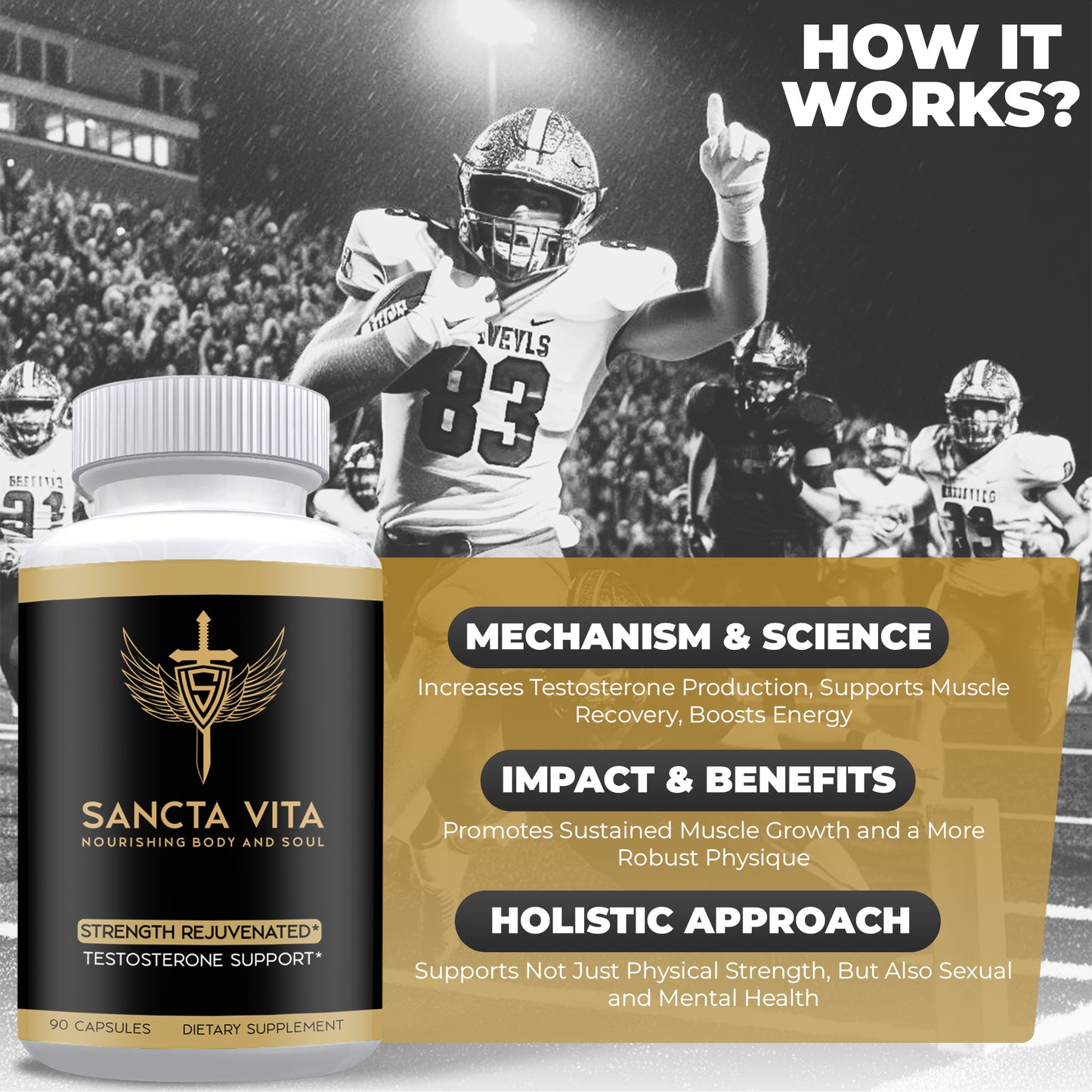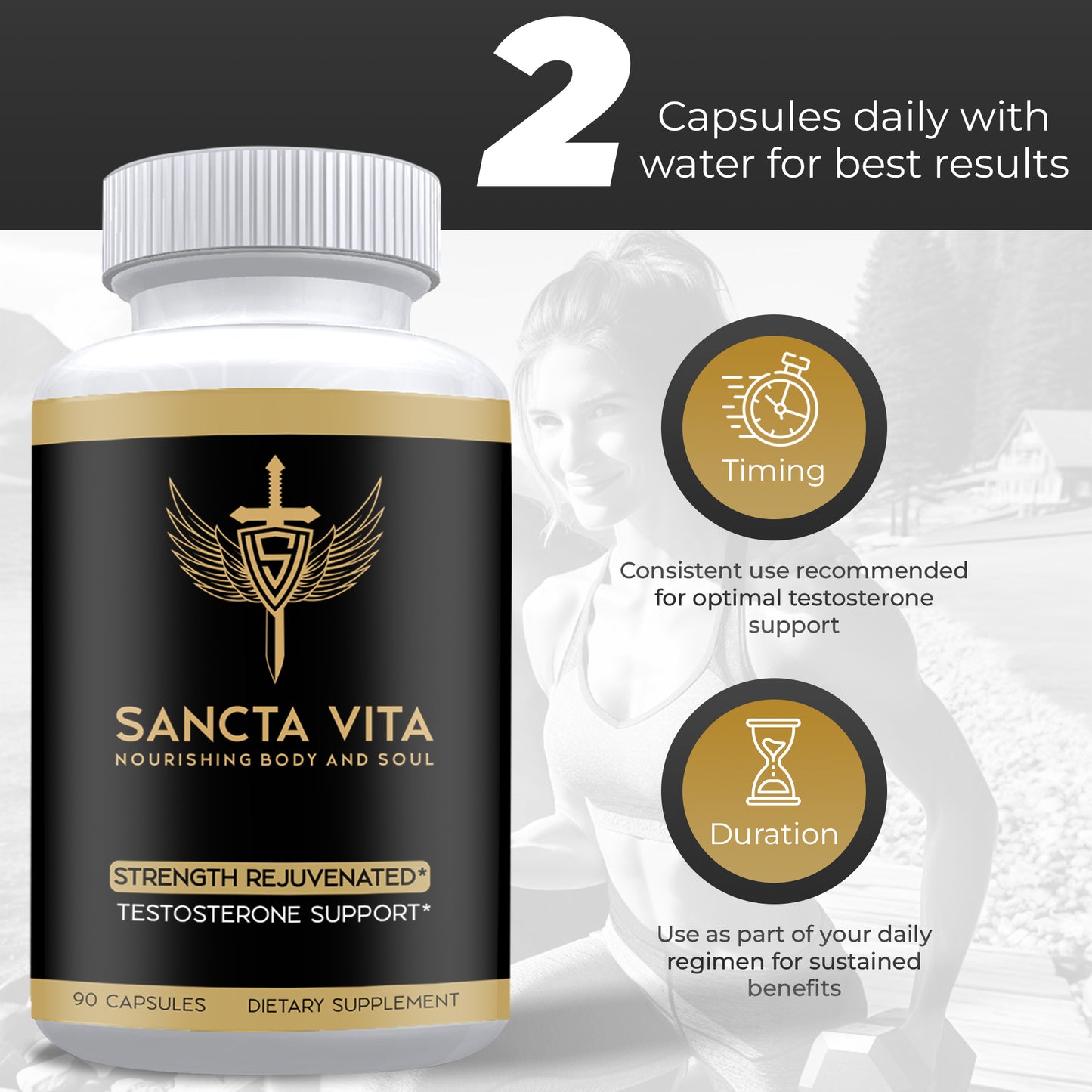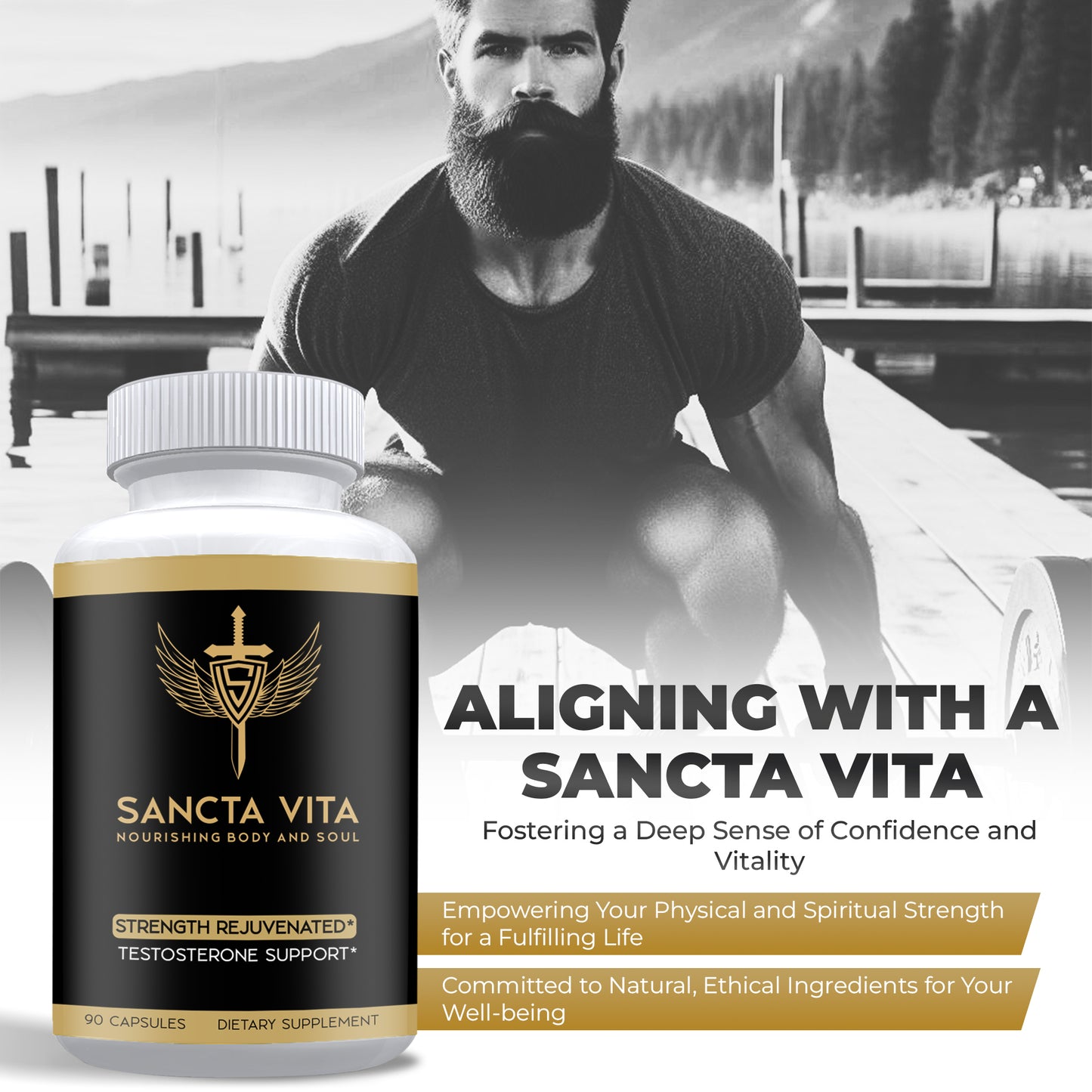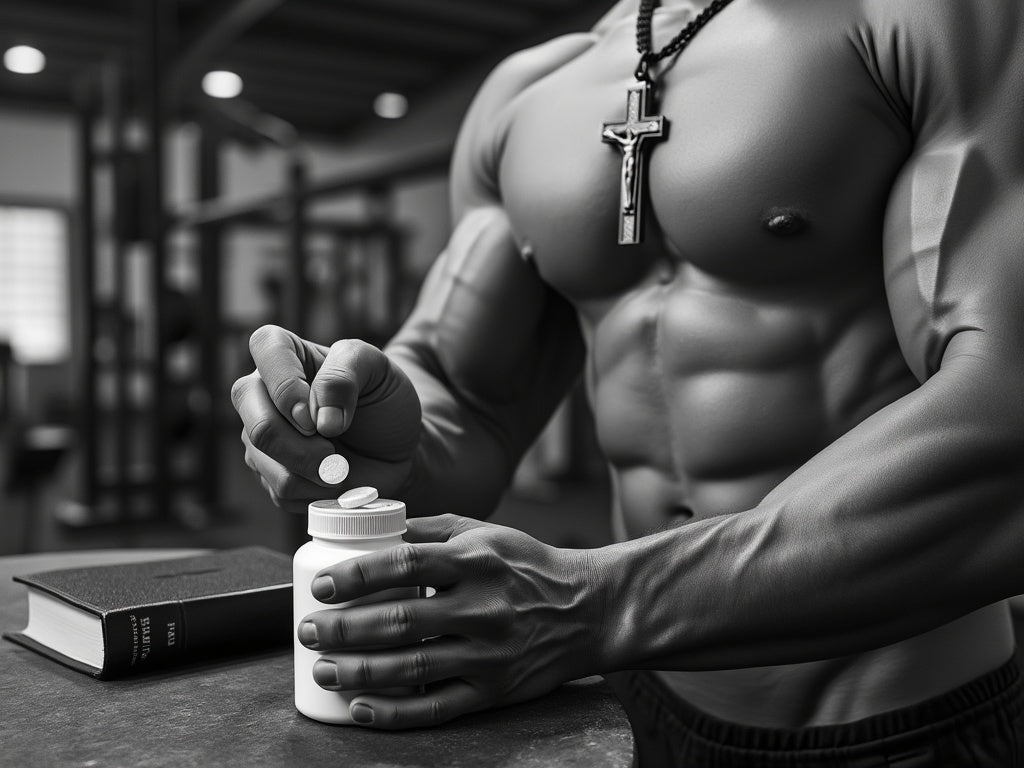
Top Testosterone Pills: Benefits, Risks & Natural Boosters
Share
In the realm of male health optimization, testosterone pills have emerged as a controversial yet potentially impactful solution. From prescription therapies to over-the-counter supplements like Tongkat Ali, these products promise to boost hormone levels and enhance vitality, but come with both benefits and risks that demand careful consideration.
Key Takeaways:
- Testosterone levels naturally decline with age, affecting 20-30% of men over 50
- Testosterone pills offer benefits like muscle growth and libido improvement, but carry potential risks
- Natural boosters such as exercise and diet can increase testosterone by up to 20%
- Tongkat Ali supplements may boost testosterone by 37% over 9 months
- Balancing supplementation with lifestyle changes is crucial for optimal results
Understanding Testosterone and Its Importance
Testosterone, the quintessential male hormone, plays a crucial role in developing and maintaining masculine characteristics. This potent androgen drives muscle growth, bone density, and libido, while also influencing mood and cognitive function. However, Father Time spares no one – testosterone levels begin their gradual descent around age 30, declining by roughly 1% annually.
The impact of this hormonal downturn becomes increasingly apparent as men age. Studies reveal that a staggering 40-50% of men over 80 grapple with low testosterone levels. More alarmingly, approximately 20-30% of men over 50 experience symptoms associated with testosterone deficiency, ranging from reduced muscle mass to diminished sexual function. This widespread issue has fueled interest in testosterone pills and other hormone-boosting strategies.

Testosterone Pills: Types, Benefits, and Risks
When it comes to testosterone pills, not all options are created equal. These products broadly fall into two categories: prescription Testosterone Replacement Therapy (TRT) and over-the-counter (OTC) supplements. TRT, prescribed by healthcare professionals, involves synthetic testosterone to address clinically low levels. In contrast, OTC testosterone pills, like those containing Tongkat Ali or DHEA, aim to stimulate the body's natural testosterone production.
The allure of testosterone pills lies in their potential benefits. Users often report increased muscle mass, enhanced libido, and improved cognitive function. Some studies have shown promising results – for instance, Tongkat Ali supplementation has been linked to a remarkable 37% increase in testosterone levels over a 9-month period. However, it's crucial to approach these findings with a balanced perspective.
While the upsides are enticing, testosterone pills aren't without risks. Common side effects include irritability, insomnia, and restlessness. More concerning are the potential cardiovascular risks associated with testosterone supplementation, particularly in older men or those with pre-existing heart conditions. The FDA has issued warnings regarding these risks, underscoring the importance of medical supervision when considering testosterone therapy.
Exploring natural testosterone boosters can offer a safer alternative for many men seeking to optimize their hormone levels.
Natural Testosterone Boosters: Alternatives to Pills
For those wary of the risks associated with testosterone pills, nature offers a compelling array of alternatives. These natural testosterone boosters encompass lifestyle factors that can significantly impact hormone production without the need for synthetic interventions.
At the forefront of natural boosting strategies is exercise. High-intensity interval training (HIIT) and resistance training have shown remarkable efficacy in elevating testosterone levels. Studies indicate that regular HIIT can boost testosterone by approximately 15%, while resistance training targeting large muscle groups can yield even more substantial increases.
Sleep, often overlooked, plays a pivotal role in testosterone production. Aiming for 7-9 hours of quality sleep nightly can enhance testosterone synthesis, particularly during REM cycles. This natural approach not only supports hormone health but also contributes to overall well-being.
Diet emerges as another powerful tool in the natural testosterone-boosting arsenal. A balanced diet rich in zinc, magnesium, and healthy fats can work wonders for hormone production. Research suggests that a high-protein, zinc-rich diet can elevate testosterone levels by up to 20% – a significant boost achieved through nutrition alone.
By integrating these natural approaches, men can often achieve substantial improvements in their testosterone levels without resorting to pills or synthetic hormones.
Choosing the Right Approach: Pills vs. Natural Methods
When it comes to boosting testosterone, the choice between pills and natural methods isn't always clear-cut. Each approach has its merits, and the optimal strategy often involves a tailored combination of methods.
For those considering testosterone pills, due diligence is crucial. Look for reputable brands that undergo rigorous third-party testing. The market offers various dosage forms, including capsules, tablets, creams, and injections, each with its own pros and cons. When opting for supplements like Tongkat Ali, adhere to safe dosage guidelines – most products recommend 200-300mg daily.
On the natural front, resistance training stands out as a potent testosterone booster. Workouts focusing on compound exercises with weights at 80-90% of your maximum rep capacity can significantly elevate hormone levels. Pair this with a nutrition plan rich in protein, magnesium, and zinc to create an environment conducive to optimal testosterone production.
Stress management shouldn't be overlooked in this equation. Chronic stress elevates cortisol levels, which can inhibit testosterone production. Incorporating stress-reduction techniques like meditation or yoga can help maintain a hormonal balance favorable to testosterone synthesis.
Ultimately, the most effective approach often combines elements of both natural methods and carefully selected supplements. Exploring testosterone support options can provide insights into finding the right balance for individual needs.
Frequently Asked Questions
Q1: What are the best testosterone pills on the market?
The "best" testosterone pills vary based on individual needs and health status. Reputable options include clinically-approved TRT pills for diagnosed low testosterone, and over-the-counter supplements like Tongkat Ali and DHEA. Always prioritize products that are third-party tested and comply with FDA guidelines.
Q2: How quickly do testosterone pills work?
The timeline for experiencing effects from testosterone pills varies. Prescription TRT typically shows results faster, often within a few weeks. Over-the-counter supplements like Tongkat Ali may take 4-12 weeks for noticeable changes. Consistency in use and complementary lifestyle changes are key for optimal results.
Q3: Are testosterone boosters like Tongkat Ali safe?
Tongkat Ali is generally considered safe when used as directed, with studies showing it can boost testosterone by up to 37% over nine months. The recommended dosage typically ranges from 200-300mg daily. While well-tolerated by most, some users may experience mild side effects like irritability or restlessness.
Q4: Can a testosterone booster help with fertility?
Some testosterone boosters may positively impact fertility by improving sperm quality and count. Natural supplements like Tongkat Ali and zinc-rich diets are less likely to interfere with fertility compared to synthetic testosterone. However, TRT can potentially suppress natural testosterone production, affecting fertility.
Q5: Do testosterone pills cause anger or aggression?
While elevated testosterone levels can influence mood, aggression is more commonly associated with misuse of synthetic testosterone or TRT. Natural boosters and lifestyle-based approaches typically have minimal psychological risks. Individual responses vary, and any mood changes should be discussed with a healthcare provider.
Q6: Can women take testosterone boosters or pills?
While testosterone is primarily associated with male health, some women may benefit from low-dose testosterone supplementation for issues like hormonal imbalances or libido concerns. However, women should only use testosterone products under close medical supervision to avoid unwanted side effects or masculinization.
References
- Harvard Health. Testosterone — What It Does And Doesn't Do.
- Andrology Center. What Is Male Testosterone? Key Role in Men's Health Explained.
- Mount Carmel Health System. The Role of Hormones in Men's Health.
Sources:

